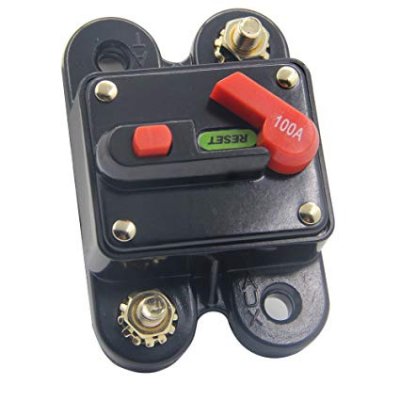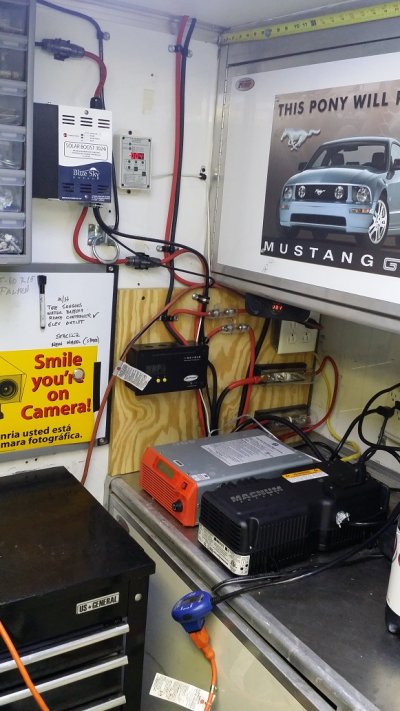Cholmes100
Member
- Joined
- Jun 23, 2019
- Posts
- 6
Hi everyone, like a lot of you I would like to, and I am in the process of installing solar on my RV, I thought it would be fun and allows for some "boondocking" I have 4 panels 19 v/ 8.9 amps. I am going to parallel two and two to give me 640 watts, 38 v @ 16.8 amps. Wiring from the panels is whatever came on them and I would like to install a breaker/switch between the panels and charge controller and between the charge controller and batteries.
Charge controller MPPT 30 amps
4 12 V 96 Amp hour batteries
My issue is after hours of searching I cannot get an actual answer, I just get led down the road of 100 more questions. Some say I don't need to install a breaker and will argue the point but I want to be able to isolate the panels from the charge controller and the controller from the batteries for my own reasons. Can anyone here that is really familiar with solar give me the straight up answer to these questions? I would really appreciate it so I can order what I need and get on with it. I have attached an image of the style breaker I thought I would use.
Charge controller MPPT 30 amps
4 12 V 96 Amp hour batteries
My issue is after hours of searching I cannot get an actual answer, I just get led down the road of 100 more questions. Some say I don't need to install a breaker and will argue the point but I want to be able to isolate the panels from the charge controller and the controller from the batteries for my own reasons. Can anyone here that is really familiar with solar give me the straight up answer to these questions? I would really appreciate it so I can order what I need and get on with it. I have attached an image of the style breaker I thought I would use.


